讲座题目:The role of the science of urban ecology in creating green, healthy, resilient and liveable cities and towns in the future
主讲人:Mark J. McDonnell (Australian Research Centre for Urban Ecology)
主持人:象伟宁 教授
开始时间:2014年7月09日(周三)上午8:30-9:15
讲座地址:闵行校区 生科辅楼城市生态实验室一楼119会议室
主办单位:生态与环境科学学院、科技处
报告人简介:
Mark McDonnell is the Director of the Australian Research Centre for Urban Ecology which is jointly supported by the Royal Botanic Gardens Melbourne and the University of Melbourne. His research interests range widely, and include the processes driving vegetation and ecosystem change, landscape ecology, the structure and function of urban ecosystems, and the conservation and management of urban biodiversity. In all these areas, he is concerned about bringing high-quality ecological data and the understanding of basic ecological processes to bear on problems of conservation and management of urban ecosystems. He has conducted pioneering research on the study of urban-rural gradients and the comparative ecology of cities and towns around the globe. Mark has authored or co-authored over 150 scientific papers, reviews, book chapters, reports and articles and has co-edited two books on the topic of urban ecology.
报告简介:
The growth of cities and towns is one of the most serious ecological problems facing China and the world. There are currently 90 cities in China with populations over 1 million people. It is predicted that by 2035, 70% of the Chinese population will live in cities. The increase in the number of people living in cities, coupled with the magnitude and intensity of human activities, has resulted in significant impacts to local, regional and global environments. The creation and expansion of cities produce new types of land-cover, which typically result in the loss of native habitats along with associated increases in impermeable surfaces. These changes in land-use result in habitat loss and landscape fragmentation, toxification of the biosphere, loss of ecosystem function, invasion of exotic species and the loss of native biotic diversity. The daily activities of humans also create novel disturbance regimes that result in new selection pressures on the plants and animals in cities. The predicted increases in the number and size of human settlements in China and especially in developing countries around the world, over the next 20 years, coupled with the predicted changes in climate has created an unprecedented call for scientific information to guide management strategies and mitigation options for sustainable, liveable cities and towns in the future. Understanding the impact that urbanisation has on the ecology of cities will help to identify measures that can be taken to minimise the detrimental effects on ecological patterns and processes. In this presentation I will share with the audience what I have learned from my 30 years’ experience investigating the ecology of urban ecosystems. Finally, I will suggest some future directions for urban ecology research and how we can use this knowledge to create green, liveable, healthy and sustainable cities for people and nature.




